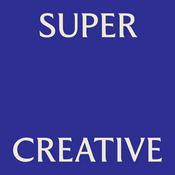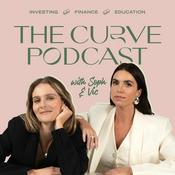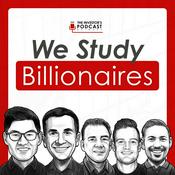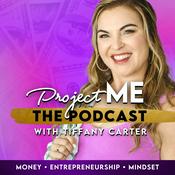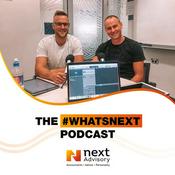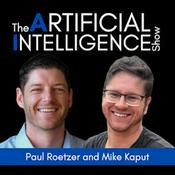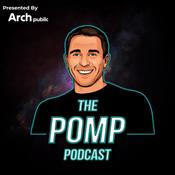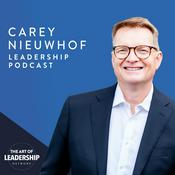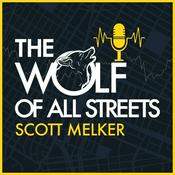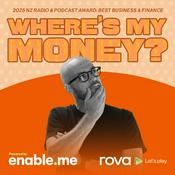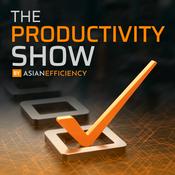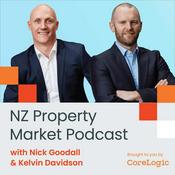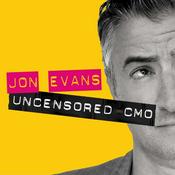146 episodes
- How are hospitals using AI and HPC to assist them in helping save lives? This week, Technology Now is joined by Keith Perry, Senior Vice President and Chief Information Officer at St. Jude Children’s Research Hospital to explore how St Jude uses the latest technologies to help treat and prevent illness and catastrophic disease, giving patients and families more time, and more hope, when it comes to diagnosis.
This is Technology Now, a weekly show from Hewlett Packard Enterprise. Every week, hosts Michael Bird and Sam Jarrell look at a story that's been making headlines, take a look at the technology behind it, and explain why it matters to organizations.
About Keith:
https://www.linkedin.com/in/keith-perry-8562347/
Sources:
Hernigou P. Ambroise Paré III: Paré's contributions to surgical instruments and surgical instruments at the time of Ambroise Paré. Int Orthop. 2013 May;37(5):975-80. doi: 10.1007/s00264-013-1872-y. Epub 2013 Apr 12. PMID: 23580029; PMCID: PMC3631503.
https://www.surgicalholdings.co.uk/history-of-surgical-instruments.html
Smith-Bindman R, Kwan ML, Marlow EC, et al. Trends in Use of Medical Imaging in US Health Care Systems and in Ontario, Canada, 2000-2016. JAMA. 2019;322(9):843–856. doi:10.1001/jama.2019.11456
https://caferoentgen.com/2023/10/07/a-tale-of-two-hands-the-story-behind-the-two-famous-radiographs-captured-by-wilhelm-roentgen/
https://www.orau.org/health-physics-museum/collection/shoe-fitting-fluoroscope/index.html - What topics have to be considered while discussing AI? This week, Technology Now is returning to Davos, Switzerland, dive deeper into the topics surrounding the AI revolution. We ask how sovereignty in AI is linked to trust and explore how sustainability both impacts, and is impacted by sovereignty within the industry. Kirk Bresniker, chief architect of HPE Labs, tells us more.
This is Technology Now, a weekly show from Hewlett Packard Enterprise. Every week, hosts Michael Bird and Sam Jarrell look at a story that's been making headlines, take a look at the technology behind it, and explain why it matters to organizations. This episode is available in both video and audio formats.
About Kirk: https://www.linkedin.com/in/kirkbresniker/ - What are HPE doing at Davos? This week, Technology Now is heading to the World Economic Forum Annual Meeting in Davos, Switzerland to talk to HPE CEO and President Antonio Neri about the topics which are currently captivating business and world leaders. We explore what’s changed since last year, why people are focusing on AI and trust, and why quantum has emerged, again, as a topic of interest.
This is Technology Now, a weekly show from Hewlett Packard Enterprise. Every week, hosts Michael Bird and Sam Jarrell look at a story that's been making headlines, take a look at the technology behind it, and explain why it matters to organizations. This episode is available in both video and audio formats.
Video podcast: https://www.youtube.com/watch?v=DxgUswwHsLg&list=PLtS6YX0YOX4c12MoKvNgYw6zwNogLW3E7&index=1&pp=iAQB - What does sovereignty actually mean? This week, Technology Now dives into the world behind the words, exploring the reality versus the fantasy of data and technological sovereignty. We ask how definitions can change across location, and why this is important to understand when trying to work across boarders. Sana Khareghani, Chief Strategy Officer at Carbon3.AI tells us more.
This is Technology Now, a weekly show from Hewlett Packard Enterprise. Every week, hosts Michael Bird and Sam Jarrell look at a story that's been making headlines, take a look at the technology behind it, and explain why it matters to organizations.
About Sana:
https://www.linkedin.com/in/sana-khareghani-4346771/?originalSubdomain=uk
Sources:
https://gdpr-info.eu/issues/fines-penalties/
https://www.dataversity.net/articles/brief-history-cloud-computing/
https://www.kiteworks.com/risk-compliance-glossary/data-sovereignty-protecting-our-digital-footprint-in-the-age-of-information/
https://gdpr.eu/what-is-gdpr/ - How are our networks designed to cope with the increasing demands of AI? This week, Technology Now dives into the topic of networking for AI, exploring how our networks have adapted and evolved to meet the ever growing demands of modern day AI infrastructure. Praful Lalchandani,VP of Networking Product Management, tells us more.
This is Technology Now, a weekly show from Hewlett Packard Enterprise. Every week, hosts Michael Bird and Sam Jarrell look at a story that's been making headlines, take a look at the technology behind it, and explain why it matters to organizations.
About Praful:
https://www.linkedin.com/in/prafullalchandani/
Sources:
https://www.networkworld.com/article/972044/ethernet-at-50-bob-metcalfe-pulls-down-the-turing-award.html
https://www.networkworld.com/article/970970/what-is-ethernet.html
https://computer.howstuffworks.com/ethernet5.htm
More Business podcasts
Trending Business podcasts
About Technology Now
HPE news. Tech insights. World-class innovations. We take you straight to the source — interviewing tech's foremost thought leaders and change-makers that are propelling businesses and industries forward.
Podcast websiteListen to Technology Now, Super Creative and many other podcasts from around the world with the radio.net app
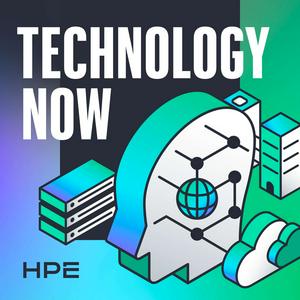
Get the free radio.net app
- Stations and podcasts to bookmark
- Stream via Wi-Fi or Bluetooth
- Supports Carplay & Android Auto
- Many other app features
Get the free radio.net app
- Stations and podcasts to bookmark
- Stream via Wi-Fi or Bluetooth
- Supports Carplay & Android Auto
- Many other app features


Technology Now
Scan code,
download the app,
start listening.
download the app,
start listening.

